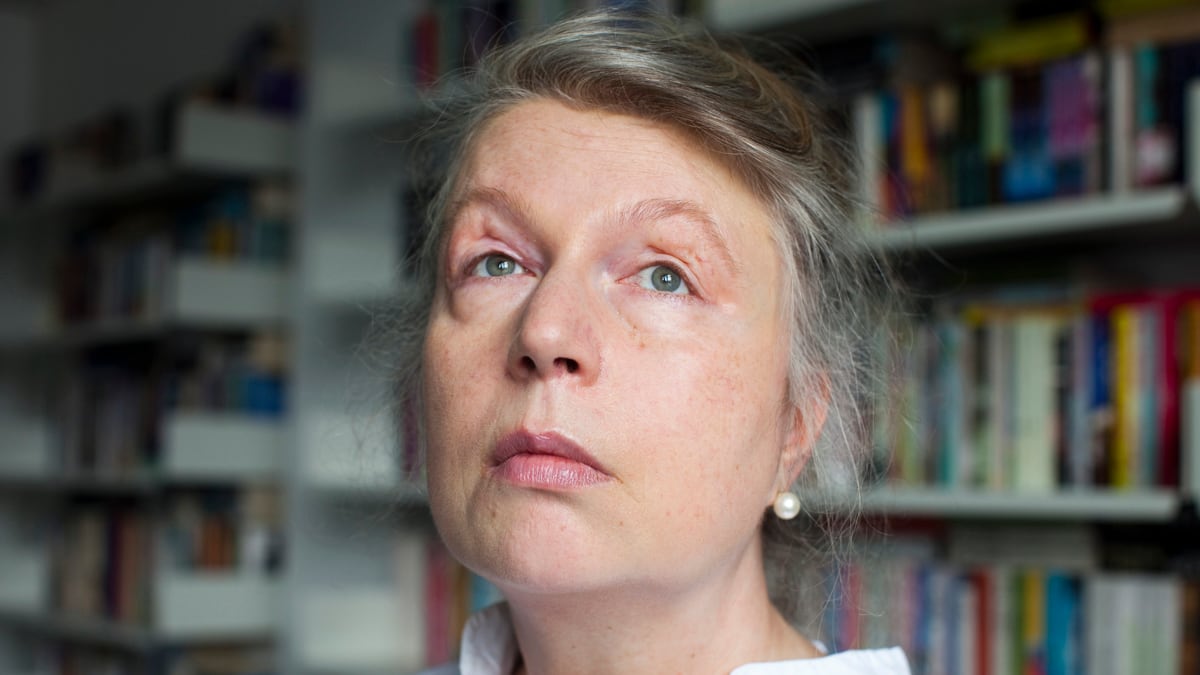What more is there to ask Candia McWilliam, someone whose memoir is already forthright to a fault? “I could have been even more so,” she admits. “I always tried to avoid any form of candor that would splash another person.” This is McWilliam all over, staggeringly self-deprecating, unable for a moment to be kind to herself or give herself a break (“those are terms I just don’t understand”), but unfailingly generous to others. She’s warm to positive comments about her most recent book, 2010’s What to Look for in Winter: A Memoir in Blindness, which was recently released on Kindle in the U.S. She was dismissive of what she calls her own “rambling” answers, yet I’ve rarely heard such eloquence in conversation.
McWilliam has always been known for her way with words. The refrain “Candia McWilliam’s swallowed the dictionary” is, she writes towards the beginning of the book, one she’s been hearing since she was 3. “The sneers recurred a lot in reviews of my stuff; what annoyed me was the implication that women had better stay within lexical limits.” Mostly, however, critics were impressed. She was named alongside Kazuo Ishiguro, Alan Hollinghurst, and Hanif Kureishi as one of Granta’s Best Young British Novelists in 1993. The three novels she wrote in the late 1980s and early 1990s all won awards.
But then she stopped writing.
This hiatus is explained by her descent into alcoholism. “People said I had writer’s block, but really I was drunk.” The issue is discussed frankly in the memoir, but this is only the beginning of the story. In the summer of 2006, when she was one of the judges for that year’s Man Booker Prize, she began experiencing problems with her eyesight. By the time of the prize’s announcement in the fall, she was functionally blind. This was hushed up for fear that the “hilariousness of a blind judge for a literary prize already buffeted by vulgar attention might have done an indignity to the prize or its sponsors,” she writes. McWilliam was eventually diagnosed with blepharospasm, a rare condition in which the eyelids permanently clamp shut, rendering the sufferer completely blind despite the fact the now-hidden eyes are still working perfectly. She went on to have surgery (at the time she was only the 16th person to undergo the operation) that used tendons taken from behind her right knee to “peg” up her brows and eyelids, restoring her sight.

Ironically, then, it appears that although the alcoholism forced her into hiding, it was the blindness that nudged her out into the light again. She actually began the memoir while still blind, dictating the early sections. “Most of my novels are to do with moral blindness and our failure to see one another clearly,” she said, and here we found ourselves discussing blindness as metaphor. “Nothing isn’t metaphor or myth,” she said. “Each of our lives is open to mythic interpretation. It’s a way of making them legible to us in an archetypal way.”
Still, her story seems closer to myth than many. McWilliam was born in 1955 in Edinburgh, Scotland, to parents whose marriage she describes as a “practical disaster.” Her mother committed suicide, leaving her daughter to discover the body, which was surrounded by pills. “I knew that something was wrong when I saw my mother on her tummy in my bed,” in the memoir she tells the story through the eyes of her then 9-year-old self. Her emotionally distant father did little to console his daughter. All he said was, “You will never see your mother again.” He quickly remarried, leaving McWilliam with an almost fairytale sense of not belonging. A scholarship to a boarding school in England was followed by admission into Cambridge, after which she went to work for Vogue in London. She married twice, first to Quentin Wallop, 10th Earl of Portsmouth, and then to the Oxford academic Fram Dinshaw. Despite a happy match the second time round, a toxic relationship with her mother-in-law dragged her to the bottle and precipitated the relationship’s failure. Having “put myself in the dark," she emerged sober but with nowhere to hide. She lost her actual sight at the moment she was ready to scrutinize herself. The more punitive might argue that it was fit punishment for a writer who admits to being “greedily visual.”

It would be all too easy to dismiss McWilliam’s work as a “misery memoir” full of regret, but it’s much more than that. “I absolutely didn’t want to write something therapeutic,” she tells me, although she does admit she was trying to “magic” her life back by putting it down on paper. She speaks of herself as a person who’s lived in “repeated destructive sequences,” with a pattern that if she’d recognized earlier could have spared other people much pain. She barely admits to her own suffering. The memoir, she explains, was an attempt to interpret the loss of eyesight constructively.
It seems significant that this is a memoir not “of” blindness. It is a book written “in” blindness—not a description of the state she found herself in, but a book about “writing and ways of seeing.” “I offer it as a work of literature, not as, ‘Here’s me, do you like me?’” But can that element ever be avoided in a memoir? She seems to think it can. “You can’t just wallow in the self,” adding that there’s a technical level that remains the same regardless of whether you’re doing fiction or memoir. “I’m telling personal things through sideways glances,” she says. “We’re all, to some degree, blind, until we look back on our actions.”






